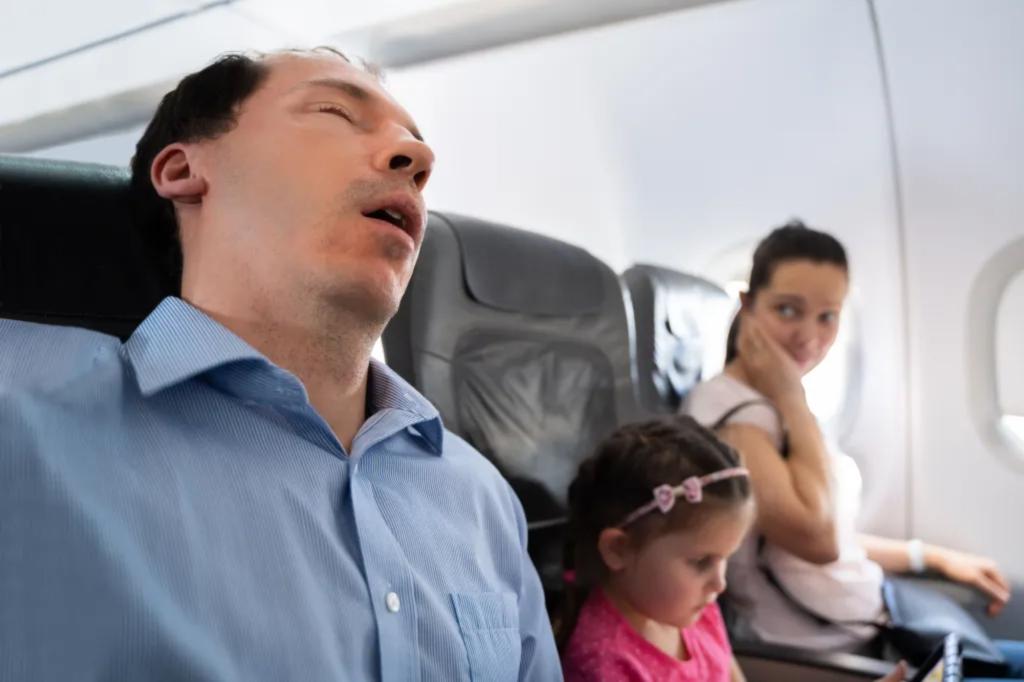The phenomenon of “seat squatting,” where individuals occupy seats not assigned to them on airplanes, continues to plague the travel industry in 2025. Social media platforms like Reddit have become breeding grounds for sharing and debating these frustrating encounters. One recent post detailed a couple’s audacious attempt to commandeer a passenger’s pre-paid seats, claiming they needed the space for their dog. Even after being confronted and acknowledging the rightful owner’s allergy, the man in the couple proceeded to engage in a silent armrest battle for the duration of the flight, highlighting the entitled behavior often associated with seat squatters. The incident sparked a lively discussion online, with commenters sharing their own experiences and debating the etiquette of armrest usage, particularly for the coveted middle seat.
The viral story underscores the growing tension between passengers vying for limited space and comfort on increasingly crowded flights. While some instances may be genuine mistakes, many cases appear deliberate, driven by a desire to secure preferred seating without paying the associated fees or simply a disregard for airline regulations. This practice not only disrupts the travel experience for those whose seats are usurped but also creates a hostile environment onboard, often leading to confrontations and unnecessary stress. The online discourse surrounding such incidents reveals a spectrum of responses, ranging from polite requests to move to outright arguments and calls for stricter enforcement by airlines. The underlying frustration stems from the perceived powerlessness of passengers facing this inconsiderate behavior.
The debate extends beyond the immediate conflict over the seat itself, spilling over into discussions about broader airplane etiquette, such as armrest rights and the responsibility of fellow passengers to intervene. The consensus among online commenters seems to be that the middle seat passenger deserves both armrests, a principle based on the inherent discomfort of the squeezed position. However, others argue that this is an unofficial rule, not universally recognized or enforced. This lack of clarity further fuels the tension, leaving passengers to navigate these situations on a case-by-case basis, often with unpredictable and frustrating outcomes. The lack of consistent airline policies on addressing seat squatting leaves many feeling unsupported and vulnerable to these types of in-flight confrontations.
Travel experts and etiquette specialists offer practical advice on handling seat squatting situations. Gary Leff, a renowned travel industry expert, emphasizes that the boarding pass dictates seat ownership and encourages passengers seeking different seats to politely request swaps rather than resorting to unauthorized occupation. This proactive and respectful approach fosters cooperation and minimizes potential conflict. Furthermore, directly engaging with the airline staff, rather than fellow passengers, is the recommended course of action if faced with a non-compliant seat squatter. This removes the burden of confrontation from the passenger and allows trained professionals to address the issue according to established procedures.
Etiquette expert Rosalinda Randall stresses the importance of maintaining composure and addressing the situation calmly. Escalating the situation by engaging in arguments or enlisting other passengers only serves to amplify the disturbance and create a more hostile environment. A measured and respectful approach, coupled with appropriate deference to airline staff, is more likely to resolve the issue efficiently and effectively. This approach also models appropriate behavior for other passengers and contributes to a more pleasant overall flight experience for everyone involved.
In conclusion, the “seat squatting” trend continues to be a source of contention in the air travel industry, highlighting a growing need for clearer guidelines and stronger enforcement by airlines. While social media provides a platform for sharing experiences and debating etiquette, it also underscores the emotional toll these encounters take on passengers. The consensus among experts is to address these situations calmly and assertively, prioritizing communication and seeking assistance from airline staff when necessary. Ultimately, fostering a culture of respect and consideration for fellow travelers is crucial in mitigating this disruptive behavior and ensuring a more positive and comfortable flying experience for everyone. Until airlines implement more proactive measures to prevent and address seat squatting, passengers must remain vigilant and prepared to handle these situations with grace and firmness.


